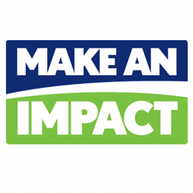
If you do hold an IMPACT Sunday or distribute our recommendations, please be sure to let us know about it! For more information, please contact us.
| impactsundays.pdf |
| november2018ballotol.pdf |
 Many congregations throughout California host IMPACT Sundays at their congregation, place of worship, or homes and other locations. Attached is a flyer with suggestions on how some congregations do this, but you are welcome to use your creativity! If you need copies of our ballot guide, you can download them here or contact us. We can send you copies but do ask for help covering the cost of printing and postage. If you do hold an IMPACT Sunday or distribute our recommendations, please be sure to let us know about it! For more information, please contact us.
0 Comments
Many of you have received our recommendations for the statewide propositions on the November 2018 California General Election in the mail. Due to popular request, we are sending them out electronically too. You can download the attached file or click on the links below if your email does not show the attachment. Please feel free to reproduce, use, and distribute for your congregation,family, and friends. If you want suggestions on how these are used by other congregations throughout the state, please see the attachment/link for IMPACT Sundays. There are several bond acts on the 2018 General Election ballot. They do increase state indebtedness but come at a time when the state’s fiscal health is excellent. With comparatively low interest rates and with major unmet needs calling for attention, this is a fiscally responsible moment to repair and restore the things we have let go untended for nearly two decades. And, as always, please contact us with any questions or needs. www.churchimpact.org/uploads/4/1/4/8/41486323/november2018ballotol.pdf
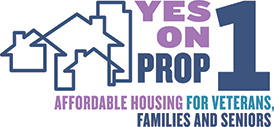 Homelessness across the nation is on the decline, but in California it is on the rise. 2.2 million low income households are competing for 664,000 affordable rentals statewide. Homelessness is on the rise. The problem is not solving itself as cities and counties eliminate requirements for very low-income affordable housing. Even with the state’s minimum wage increases, positive impacts are offset by skyrocketing housing costs. This proposition raises $4 billion in general obligation bonds (repayable from the General Fund) for housing programs. It builds on three legislative bills and Proposition 41 we passed in 2014. Proposition 1 expands the eligible populations and affirms the state’s commitment to ending homelessness for individuals and families including for First Nations people who have been omitted in the past. 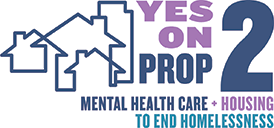 Known as the “No Place Like Home” proposition, this does not spend new money. We passed this via Proposition 63 in 2016. What Proposition 2 does is rectify a weakness in that vote that has put a court hold on enacting Prop. 63. Prop. 63 used “the millionaire’s tax” for mental health treatments and supports that we had passed in 2004. It did not, per the courts, adequately permit a diversion of funding from treatment to housing. Proposition 2 will give the necessary legal “clean up” of our intent in passing Proposition 63 to allow creation of housing for those with mental illnesses along with supportive services for their mental health issues. 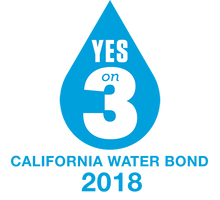 Since 1960 California has proposed 21 water bonds, 20 of which have passed. One of them voters passed in 2014 is largely though not totally expended. What funds remain are already encumbered. The most recent was Proposition 68 that was approved by voters in the June 208 primary. Clearly those funds have not been used, but while Prop. 68 had some water elements, there is very little overlap in the purposes of each of the two bonds. Unlike most bonds, the funds raised will go directly to the departments and agencies responsible for the covered projects. That means none of the money will go to the Legislature that might then be diverted to other uses. The money will be distributed to local government, non profits, First Nations tribes, etc. on the basis of grants, some of which will require matching local funds. There has been almost no federal assistance to California’s water issues in many years. The bond specifically bars use of this bond’s revenues for the proposed Twin Tunnels water diversion project. Prop. 3 covers safe drinking water, improved management of groundwater, wastewater recycling coupled with groundwater desalting and conservation, storm water management, increased water supplies for improved fish and wildlife habitat, watershed improvement and fire damage recovery, flood management, improved river parkways and urban streams, Bay Area water management integration. Restoration of the Friant-Kern Canal, damaged from ground subsidence due to groundwater depletion, and repair of the Oroville Dam are included. While farmers should pay for restoration, it must first be done. Then the issues of liability can be litigated. Overall, accessible water supplies will increase due to improved storage and conservation plans. It is estimated that the state will create 1.5 million acre feet of new water supply, enough for 3 million families. Every area of California is assisted with the same regard for prioritizing economically disadvantaged areas that was done in the June Prop. 68 water and parks allocation. This is a comprehensive, thoughtful set of priorities emphasizing conservation, recycling, and wise use of scarce water resources that should improve the state’s water stability for years to come.  This measure will authorize $1.5 billion in general obligation bonds to build, renovate, expand, and equip up-to-date non-profit and public hospitals that serve the health care needs of infants and children. The distribution is 72% to seven non-profit hospitals, 18% to five University of California general acute hospitals, and 10% to public and private hospitals that provide services to children eligible for California Children’s Services. Bond funding for bricks-and-mortar or durable equipment is a good investment. As technology expands in pediatrics, the children of California should have access to the highest standards of care. These bond funds will permit statewide access in most regions to that standard of care. 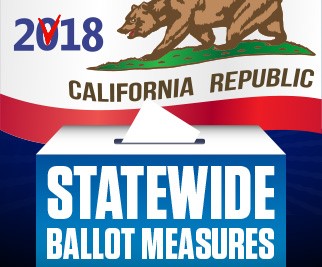 Proposition 5 seeks to give tax reductions to people with disabilities and those over 55. In principle this is a good measure useful in a high priced housing market. California’s existing property tax law from the 1978 Proposition 13 has kept those taxes quite low, especially for those with older homes in which they have resided for many years. But those buying today find the new taxes very high, pegged to the market value of far more expensive homes. The problem comes when people need to move when they are older or disability strikes. These events tend to come with a reduction in income. The soaring home sale prices in the state make it harder for people to find smaller, handicapped –access-friendly or lower maintenance accommodations that aren’t considerably more expensive with higher property taxes than they have been paying. That makes them “house rich” but “income poor”. While people may sell their existing home for profit to buy a new one, the monthly outlay on new, higher taxes may be prohibitive. Eleven counties now give a tax reduction to people with disabilities or those over 55. This measure would direct all counties to honor that reduction so that people would be free to move. Counties are concerned that this would reduce a critical tax base and do harm to their public school funding as well. There are reasons why that is accurate and reasons why that may not be true since old houses would be sold at market value, But the concern as expressed by the Legislative Analyst’s Office (LAO) is for a $1 billion loss to counties annually. The problems with this measure lie in the deep confusion of poorly worded guidelines. Our IMPACT Board came to very different conclusions about what different section meant, and making clear there would be many unintended consequences likely. There are clauses that make it seem this break is renewable and others stating it is a one- time claim. It appears to be hereditable which is a serious flaw. With these poorly-delineated guidelines and uncertain standards, IMPACT supports the principle but cannot recommend this proposition, no matter how good the intent.  Requires any Measure to Enact Certain Vehicle Fuel Taxes and Vehicle Fees be Submitted to and Approved by the Electorate. In 2017 the Legislature on a 2/3 constitutionally-mandated vote (bipartisan with one Republican), passed a tax increase on gasoline. The Road Repair and Accountability Act of 2017 (RRAA) raised the per gallon gasoline tax by $.12 and by $.20 for diesel. In the recent June 2018 primary election, voters passed Proposition 69 that requires all funds from this tax be spent exclusively on road and bridge repair. This proposition is from opponents of that tax. If Proposition 6 passes, the RRAA would be repealed. RRAA is expected to generate $52.4 billion between 2017 and 2027, all of which would go to repair general surface maintenance (pothole repair and surfacing), fund 1571 projects improving road safety, 554 projects repairing or replacing bridges and overpasses, 337 projects relieving traffic congestion, 453 projects upgrading public transportation operations and services, and 442 projects improving pedestrian safety. Total spending is expected to generate 68,000 new jobs and $183 billion in economic investments based on high quality highways and road access, all of which would end. There is no question that sales taxes such as RRAA are regressive. However, those organizations that advocate for the less well-off support the retention of the tax: Congress of California Seniors, NAACP, California League of United Latin American Citizens. The creation of jobs, the improvements for pedestrians and those using public transit are among the broad civic improvements that benefit even the poorest of our residents. We find strong reasons to support continuation of the tax and to secure the benefits that will accrue. We have deferred this spending for nearly two decades. It must be done now. Proposition 7: AB 807 (Chapter 60. Statues of 2018) Chu. Daylight saving time No Recommendation9/26/2018 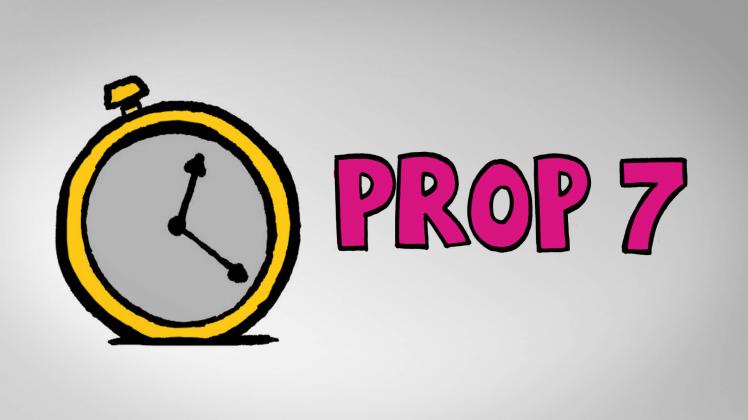 This proposition would direct the Legislature to decide, upon a two-thirds vote, whether or not to continue the state’s transfer to and from Daylight Saving Time. The proposition projects permanent Daylight Saving Time year around. This proposition has no moral ground upon which to deliberate acceptance or rejection. It’s a matter of personal or professional choice. Farmers don’t like it. Recreationists do. While CCC IMPACT takes no position, we do urge you, regardless of outcome, to remember to change your smoke detector batteries at least once a year. |
AuthorThe Rev Dr Rick Schlosser Archives
January 2024
Categories
All
|
||||||||||||||||||
|
|
Website by L2Designery
|
